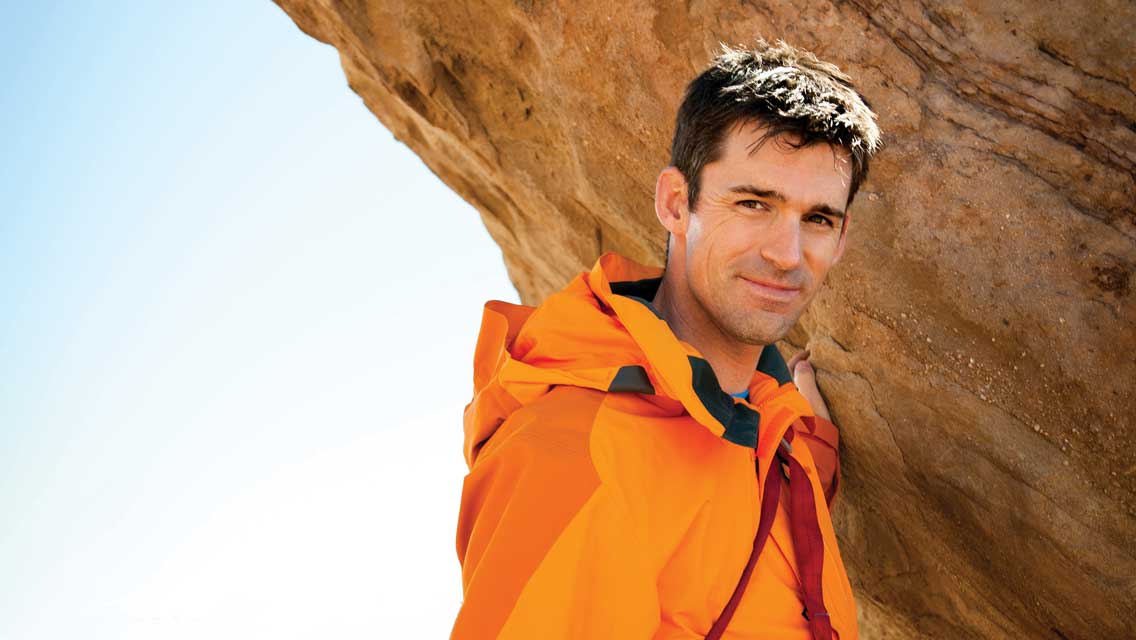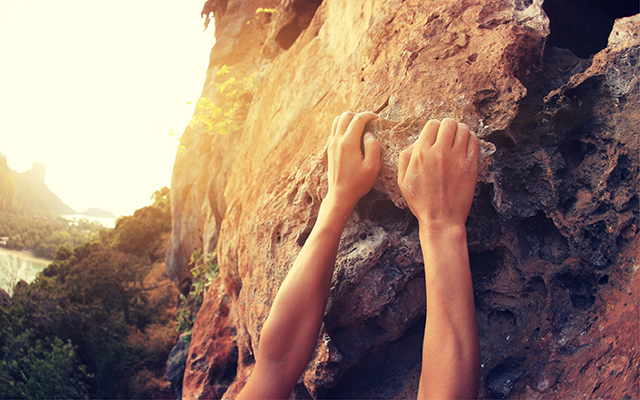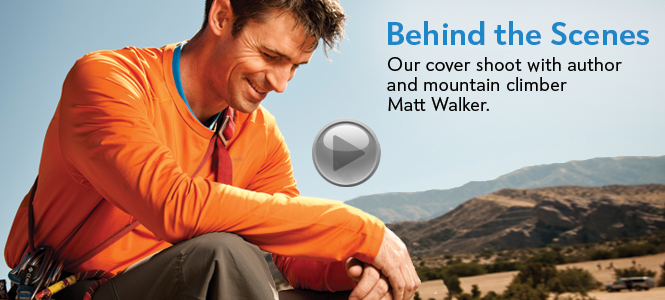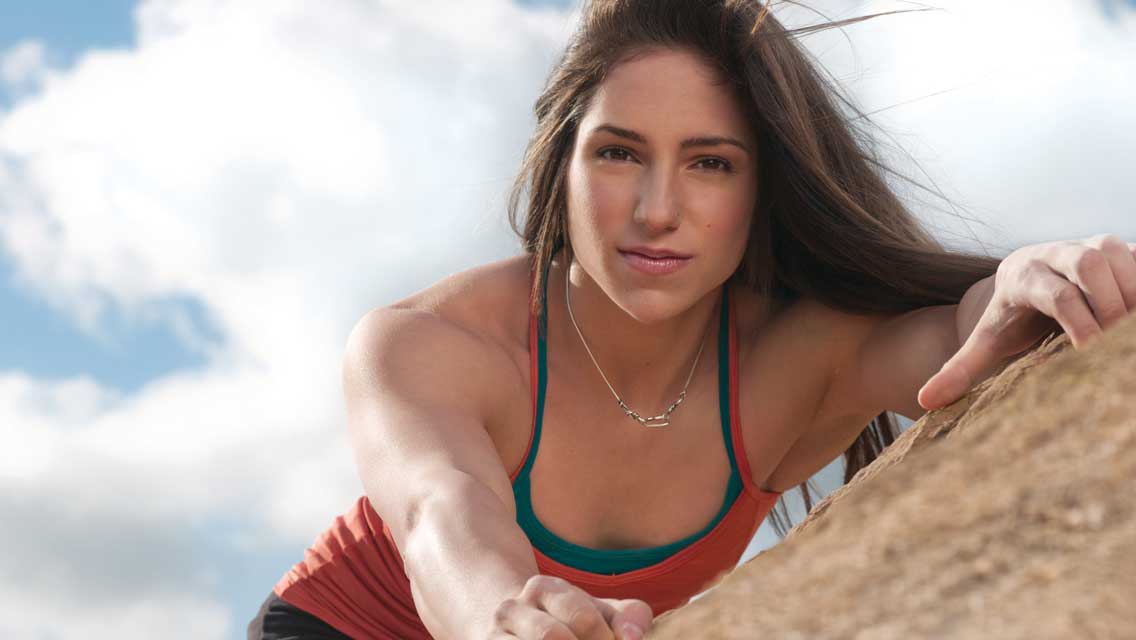Matt Walker has conquered mountains on every continent, earned a master’s degree in applied behavioral science, launched his own personal development company and written a book, Adventure in Everything (Hay House, 2011) — all before his 40th birthday. But he’ll be the first to tell you that what you accomplish isn’t nearly as important as how you go about accomplishing it.
What matters, says the 38-year-old Walker, is to be mindful and intentional in all your actions — from taking your next step on a rock wall to choosing the next step on your life’s path.
That’s the whole idea behind Walker’s company, Inner Passage (www.innerpassage.net), which Walker established with a conscious goal in mind: helping others embrace their sense of adventure, make more mindful life choices and expand their sense of self in the process.
EL | How did you get into climbing?
MW | In high school, in New Jersey, I had a family friend whose father was a climber
and he introduced us to it. My friend and I realized that it was an easy way to get away from home without getting into trouble. When I went to university, I fell into a group of more-experienced climbers who mentored me through the process. I found that, at the root of it, what was driving me was the companionship, developing these relationships.
EL | Your master’s thesis was about climbing “as a microcosm of a more fundamental human experience” and “what happens when we open up ourselves for adventure.” What did you mean by that?
MW | A mountain climbing adventure basically has the human experience condensed into this very, very small period of time. Whether it’s a 30-day expedition or a three-day climb, all these core aspects of our personality come forward in this condensed and direct way. Everything is so intense and highlighted that it gives us an opportunity to really practice and shift and change behaviors if we desire to.
EL | In your book and workshops, you reference five key principles you call “the elements of adventure.” What are they?
MW | (1) Seek the highest endeavors; (2) embrace uncertainty; (3) fully commit; (4) tolerate adverse situations; and (5) seek great companionship. These are all lessons I originally learned from climbing, but that I now see in terms of a larger life perspective. At the macro level, the five elements of adventure can help bring new mindfulness about how we plan out our lives and make big decisions. At the micro level, they can help inform how we operate on a daily or moment-to-moment basis. I think we need to create space for the five elements of adventure in both realms. There’s an important balance each of us has to strike in honoring and applying our strengths while also recognizing and honoring those areas that are more challenging for us. I see the five elements as a support system for negotiating both areas.
EL | Does living by the five elements lead to a more adventure-filled life?
MW | Yes, but adventure is not necessarily about climbing Mount Everest, swimming the English Channel or rowing the Pacific. The five elements are really about living a life of full engagement. That’s a life where you’re fully present and fully invested in all aspects of your life: your significant relationships; your role as a spouse, parent, sibling and friend; the work you do; and your involvement in your community. Being fully engaged has a really different feel to it than being a passive participant. And that’s what real adventure is all about.
EL | You incorporate climbing into a lot of your personal development work. Is there something about the physical act of climbing that helps people grow or evolve on other levels?
MW | Climbing allows us to test ourselves within a relatively safe, controlled context — a space where the perception of risk is high and the sense of challenge is central, but where we aren’t in any real danger. It allows us to push beyond our preconceived notions of what is possible, and to do so in a contained, very focused way. We get to push ourselves, make mistakes, recover, learn from our mistakes and immediately apply those lessons to our next climbing attempt. We are able to connect the internal experience with the external, and to see connections between our physical, mental and emotional movement patterns. I think the heightened focus of climbing is a big component of that. There’s a mental awareness and clarity of experience there that you rarely encounter in daily life.
EL | People tend to think of professional climbers as unconventional free spirits, but you had some reservations about adopting the life of a climber — especially when you were contemplating marriage. How did you reconcile those choices?
MW | At the time we got engaged, I was guiding internationally full-time, which entails a tremendous amount of travel. These were expeditions that ranged anywhere from three to six weeks at a time. So when Liz and I realized that we wanted to get married, I really struggled with my future role as a spouse and father. Where did climbing, going on expedition and making a living fit into these new responsibilities? My initial reaction was that I needed to follow a more conservative and conventional path, and get a “real” job. But while out on a climb with my mentor, Jeff, I shared my apprehensions about all this, and he reminded me that Liz didn’t fall in love with me based on my willingness to follow a traditional model; she fell in love with me for who I am. I didn’t need to go down a conventional path to be in a relationship with her; I just needed to be myself. It was a pretty significant paradigm shift for me, and a liberating one.
EL | Now that you’re on this path of your own choosing, how do you make sure it doesn’t become its own sort of daily grind?
MW I have to be aware of both the cognitive and physical aspects of my life, and stay focused on doing the things I really enjoy. If I’m doing too much of one thing and not enough of another, then I tend to get bored and frustrated. I’ve learned that I need to have my mind and body engaged. Not always at the same time, but in terms of balance, I need to have a variety of things going on. For me, integrating all the different elements of my life — work, community, family, physical adventure — is what brings me satisfaction and joy.




This Post Has 0 Comments